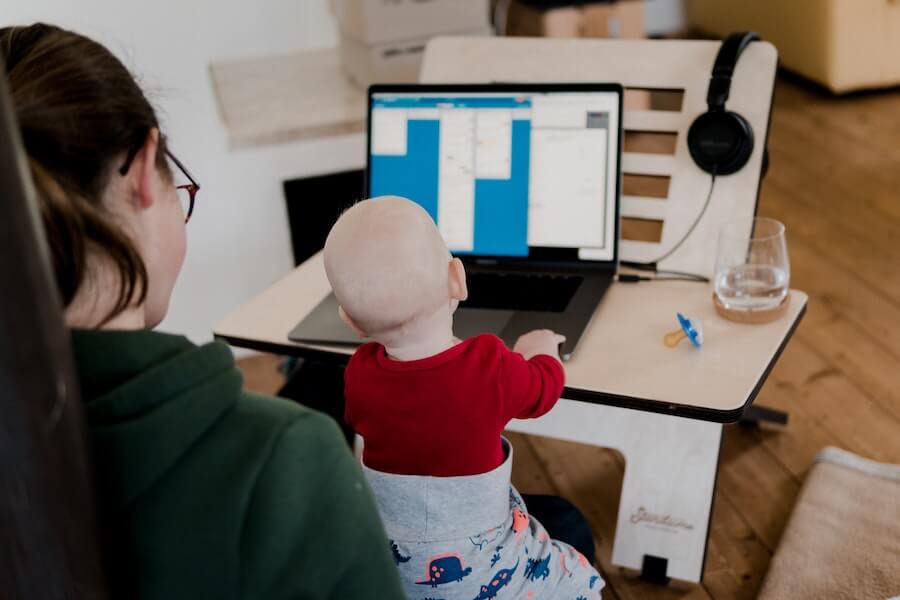My colleague was paying a bit too much for energy. $500 a year too much!
Maddie had been with the same energy provider for the last six years. And while she was paying a good price for the first 12 months, her bills suddenly ballooned by around ~40% a few years ago.
With this year’s COVID-19 restrictions forcing Maddie to spend more time at home, her rising bill was no longer something she could ignore.
Sound familiar? Keep reading for a few tips on how to save on your energy bill during the COVID-19 pandemic.

Topics in this article:
Compare your plan
A lot of plans have what is called a ‘benefit period’. This means you get a discount for a certain period of time (usually 12 months), after which the price suddenly changes and has you scratching your head like Maddie was.
So back to the $500. That’s how much Maddie was able to save per year once she compared and switched to a cheaper plan.
Her original bill was $564 over 90 days (~$2256 per year).
The price on a new plan that she was able to find by comparing on Finder was $439 over 90 days (~$1756 per year).
$2256 – $1756 = $500
And the best part?
It only took her a few minutes to sign up and make the switch. Then it was completely hands-off, as her new provider handled everything.
| Quarterly | Annual | |
| Original bill | $564 | $2256 |
| Estimated bill from the new provider | $439 | $1756 |
| Estimated savings | $125 | $500 |
Don’t be like Maddie: Understand what your bill means
Australians like Maddie may just not know how to read their energy bill to figure out if they are paying too much.
According to Finder’s Consumer Sentiment Tracker, a nationally representative study of over 5000 respondents, 5.1 million Australians (29%) have little to no understanding of their electricity bill.
One in three Australians (34%) have no idea what their electricity usage is or where they can find it on their bill.
This means that even if someone wants to compare their plan to the other options out there, they might not even know where to start.
When looking at your energy bill, take note of features like:
• Your energy usage.
• The total cost.
• The billing period.
This energy bill guide can take you through how to find the most important information and how to compare it to other energy plans.
Beware of ‘setting and forgetting’
As was the case with Maddie, she took the deal she received from her original provider and forgot that the deal would expire at the end of the 12-month benefit period.
Check your energy plan’s contract type when you sign up and take note.
If your plan has a 12 month benefit period, consider comparing and switching after that period of time.
Note: Check for any exit fees before you switch, too.

Smarter energy usage during COVID-19
Aside from making sure you’re on a better value plan, there are a few things you can do to ensure you save on energy during the COVID-19 pandemic.
If you are on a ‘time of use plan’ – as in, your provider charges you more during peak periods and less during off-peak periods – plan your energy use around this.
For example, do your washing early in the morning or late at night (off-peak) if possible, or at the very least, avoid doing it during the evening.
As an example, here are the off-peak hours for customers in the Ausgrid region (winter):
| Period | Time | Rates |
| Peak period | 5pm to 9pm | Most expensive |
| Shoulder period | 7am to 5pm | In between |
| Off-peak period | 9pm to 7am | Least expensive |
Additional tips:
- Find your energy hotspots. Can you limit your biggest power drainers? Check your heating and cooling appliances, as they usually use the most power.
- Use energy-efficient appliances. If you can afford the upfront cost, consider installing more energy-efficient appliances so that you save more in the long run.
Bottom line
At the end of the day, make sure you understand what plan you are on. If your rates have gone up, be sure to compare and switch if you have to.
Use your energy wisely, either by doing things during off-peak periods or investing in energy-efficient appliances.
Written by:
Maurice Thach, is a publisher at Finder who covers anything that sounds hard to compare. This includes life insurance policies, side hustle ideas and energy plans. Maurice has a Bachelor of Commerce from the University of New South Wales, a Tier 2 General Insurance certification and a Tier 1 Life Insurance certification. Outside of work, you’ll probably find Maurice hitting up the nearest basketball court.





